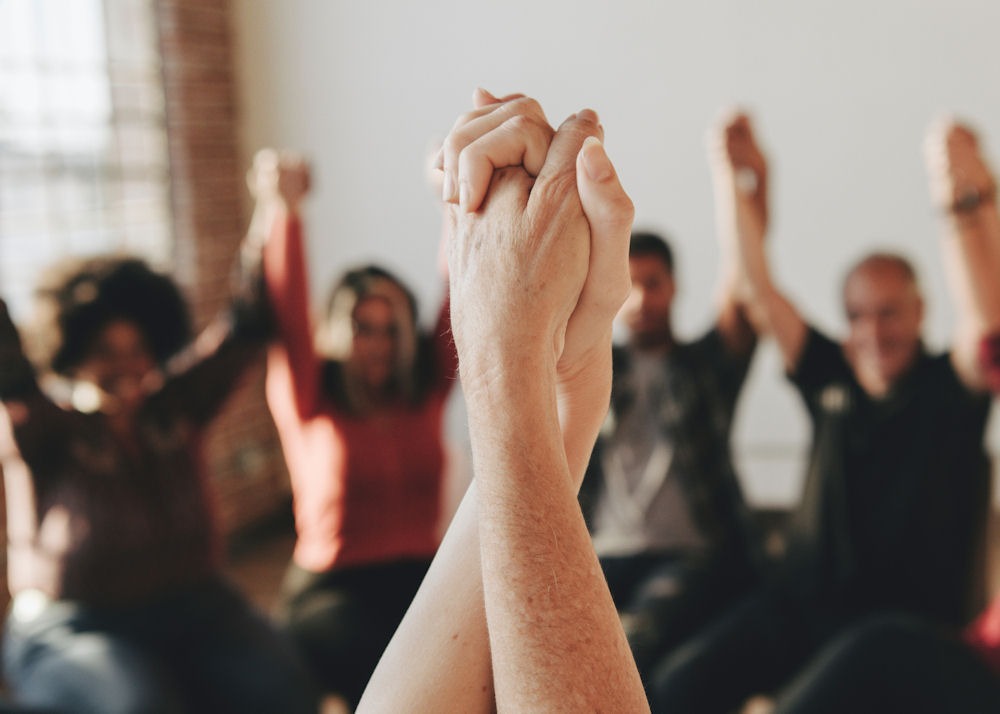Marijuana abuse is when people misuse cannabis, leading to negative consequences in their lives. This can happen through frequent, excessive use, often in social settings. Statistics show that marijuana use has been increasing, especially among young adults. According to the National Survey on Drug Use and Health (NSDUH), in 2022, about 48.2 million people aged 12 or older in the United States used marijuana in the past year.
This represents 17.5% of the population. Among them, about 4.8 million people met the criteria for marijuana use disorder, which means they had significant impairment or distress due to their marijuana use. Marijuana was also the most commonly used illicit drug among adolescents aged 12 to 17, with 11.8% of them reporting past-year use.
At First City Recovery Center, we believe in providing compassionate support and evidence-based treatments to assist people facing marijuana abuse. By comprehending the underlying causes and offering personalized interventions, we aim to achieve successful recovery and enhanced well-being.
We prioritize promoting education and awareness about marijuana abuse risks and ensuring accessible resources for those seeking assistance. Our goal is to create a supportive environment at our inpatient rehab in Kokomo, Indiana that empowers people to overcome marijuana abuse and reclaim their lives.
Signs of Marijuana Abuse
- Increased Tolerance: Over time, a person may need more marijuana to feel its effects, which could indicate abuse.
- Neglecting Responsibilities: When marijuana use interferes with daily obligations like work or school, it may suggest abuse.
- Using as a Coping Mechanism: Using marijuana excessively to cope with stress or emotions can be a sign of abuse.
- Withdrawal Symptoms: Experiencing irritability, restlessness, or sleep disturbances when trying to quit can indicate abuse.
- Social and Relationship Issues: Marijuana abuse may lead to conflicts and strained relationships with loved ones.
- Loss of Interest in Hobbies: A person may lose interest in activities they once enjoyed due to excessive marijuana use.
- Continued Use Despite Negative Consequences: Despite negative effects on health or life, a person persists in using marijuana.
- Craving and Preoccupation: Constantly thinking about and craving marijuana may be a sign of abuse.
- Legal and Financial Problems: Engaging in illegal activities or spending excessively on marijuana may indicate abuse.
- Physical and Psychological Health Issues: Long-term marijuana abuse can lead to respiratory problems and cognitive impairments.
Having an addiction or dependency on marijuana means experiencing compulsive cravings and difficulties controlling its use, despite negative consequences. Statistics show that around 30% of marijuana users may develop a marijuana use disorder.
Addiction: It involves a psychological and physical reliance on marijuana, leading to an inability to stop using, even when it causes harm to one’s health, relationships, or responsibilities.
Dependency: Refers to relying on marijuana to cope with stress, emotions, or daily life, creating a cycle where the person feels they need the drug to function normally.
Compassionate support and understanding are essential when addressing marijuana abuse. Encouraging people to seek help and offering resources can aid in their path to recovery and improved well-being. Statistics show that about 1 in 10 marijuana users develop an addiction, emphasizing the importance of early intervention and support.
The Effect of Marijuana Abuse on the Mind and Body
Marijuana abuse can have significant effects on both the mind and body. It affects cognitive functions, memory, and overall mental health. Statistics indicate that long-term use can lead to health issues, especially when started at a young age.
The Effect of Marijuana Abuse on the Mind
Marijuana can impair cognitive abilities, affecting attention, learning, and problem-solving. Regular abuse may lead to memory problems and reduced motivation. In some cases, it can exacerbate underlying mental health conditions like anxiety and depression.
The Effect of Marijuana Abuse on the Body
Long-term marijuana abuse can harm respiratory health, as smoking the drug can damage the lungs and lead to chronic bronchitis. It may also impact cardiovascular health, increasing the risk of heart-related problems. Additionally, regular use can affect fertility in both men and women.
Compassionately addressing the effects of marijuana abuse is essential. Providing education about potential risks and supporting those seeking help can lead to improved well-being and healthier choices. Encouraging early intervention and evidence-based treatments can mitigate the impact of marijuana abuse on both the mind and body.
The Risks of Prolonged Marijuana Abuse
- Cognitive Impairment: Long-term use can impact memory, attention, and problem-solving abilities, hindering daily functioning.
- Mental Health Issues: Regular abuse may worsen anxiety and depression, and increase the risk of developing psychiatric disorders.
- Respiratory Problems: Smoking marijuana can harm the lungs, leading to chronic bronchitis and other respiratory issues.
- Cardiovascular Risks: Marijuana use may raise heart rate and blood pressure, potentially increasing the risk of cardiovascular problems.
- Addiction: Long-term marijuana abuse can lead to addiction, characterized by intense cravings and difficulty quitting despite adverse effects.
- Social and Relationship Challenges: Continued use may strain relationships and lead to social isolation.
- Educational and Occupational Impact: Marijuana abuse may hinder academic or job performance.
- Legal Consequences: Engaging in illegal activities related to marijuana can result in legal issues.
- Fertility Issues: Long-term use can affect reproductive health in both men and women.
Impact of Marijuana Abuse on Social Life
Marijuana abuse can have profound effects on your social interactions, relationships, and overall social life.
- Strained Relationships: Excessive marijuana use may cause conflicts with family and friends, leading to strained relationships.
- Social Withdrawal: People abusing marijuana may isolate themselves from social activities and gatherings.
- Diminished Social Interests: Hobbies and social activities that were once enjoyable may lose their appeal due to marijuana use.
- Social Stigma: Marijuana abuse may lead to social stigma and judgment from others.
- Peer Influence: Being in social circles where marijuana is prevalent can perpetuate abuse.
- Communication Issues: Regular use may hinder effective communication with loved ones.
- Lack of Emotional Connection: Marijuana abuse may lead to emotional disconnection from family and friends.
- Missed Opportunities: Social life can suffer as people prioritize marijuana use over social engagements.
- Conflict Resolution Challenges: Marijuana abuse may lead to difficulties in resolving conflicts within relationships.
Recognizing how marijuana abuse impacts social life is essential for making positive changes. Seeking support and intervention can help people rebuild their social connections and foster healthier relationships. With compassionate guidance and determination, a fulfilling and supportive social life can be regained in the journey to recovery.

Detox and Treatment for Marijuana Abuse
Detox helps remove marijuana from the body, managing withdrawal symptoms under medical supervision.
Healthcare professionals provide compassionate care during detox to ensure safety and comfort.
Rehab centers offer evidence-based therapies like Cognitive Behavioral Therapy (CBT) to address underlying issues and behavioral patterns.
Treatment plans are tailored to meet each person’s unique needs and challenges.
Participating in group therapy offers support and a sense of community with others facing similar struggles.
Involving family members in therapy can strengthen support networks and promote healing.
Treating co-occurring mental health issues alongside marijuana abuse is essential for comprehensive recovery.
Ongoing support and relapse prevention strategies help maintain sobriety post-treatment.
Incorporating holistic approaches like mindfulness, meditation, and yoga enhances overall well-being.
Detox and treatment for marijuana abuse provide the necessary tools and support to overcome addiction and achieve a healthier, more fulfilling life. By tailoring treatment plans to meet each person’s unique needs, rehab centers empower people to break free from marijuana abuse and embrace a healthier future.
Benefits of Marijuana Rehab
At marijuana rehab centers, individuals find a compassionate environment where they are understood and supported without judgment. Group therapy sessions with peers facing similar struggles provide a sense of community, encouraging open discussions and shared understanding. Moreover, evidence-based treatments are thoughtfully adapted to address marijuana’s specific effects on motivation and cognition.
By incorporating holistic approaches, such as mindfulness and yoga, the rehab centers prioritize overall well-being, strengthening recovery efforts. Additionally, these centers emphasize the significance of dual diagnosis, ensuring co-occurring mental health issues are comprehensively addressed, and laying the foundation for sustainable recovery.
Embracing Recovery from Marijuana
It’s important to know that experiencing a relapse during the recovery journey is common and doesn’t mean you’ve failed. It’s a natural part of the process and an opportunity for growth and learning.
Everyday Reality: Many people face relapses along the road to recovery, and it’s okay to encounter this challenge.
Learning from Setbacks: Relapses can teach you valuable lessons about your triggers and areas that need extra attention in your recovery.
Continued Progress: Remember, having a relapse doesn’t erase the progress you’ve made. It shows your dedication to finding lasting sobriety.
Reach Out for Support: During tough times, lean on your loved ones, support groups, or professionals who can provide understanding and guidance.
Equipped for Prevention: Rehab centers often equip you with practical strategies to prevent relapses and navigate potential triggers.
Be Kind to Yourself: Treat yourself with compassion and know that setbacks are a normal part of the journey. Don’t give up. Pick yourself up and keep going.
Embracing the reality that relapse is a natural part of recovery can ease the pressure and encourage you to approach your journey with self-compassion and determination. Remember, you’re not alone, and seeking support and learning from setbacks are essential steps in achieving lasting recovery and a brighter future.
First City Recovery Center: Your Compassionate Path to Lasting Recovery

- Detox, Inpatient, and Sober Living: Our center provides a continuum of care, starting with detoxification, ensuring a safe and supportive environment during the initial stages of recovery. Inpatient programs offer intensive residential treatment with round-the-clock support. Our sober living homes in Kokomo, Indiana foster a structured environment, encouraging gradual reintegration into daily life.
- Outpatient, PHP, and IOP: For those seeking less intensive care, we offer outpatient programs, Partial Hospitalization Program (PHP), and Intensive Outpatient Program (IOP). These options provide flexibility while maintaining a strong focus on recovery.
- Individualized Treatment Plans: Our team tailors treatment plans to address your specific challenges and support your journey toward lasting sobriety.
We are committed to providing compassionate and effective care for individuals navigating the complexities of addiction. It is our goal to support you every step of the way on your journey to recovery, whether you need detox, inpatient treatment, or less intensive options like outpatient and IOP. Embrace your recovery journey with First City Recovery Center, knowing that you have a dedicated team by your side, ready to guide you toward a brighter and healthier future.

















